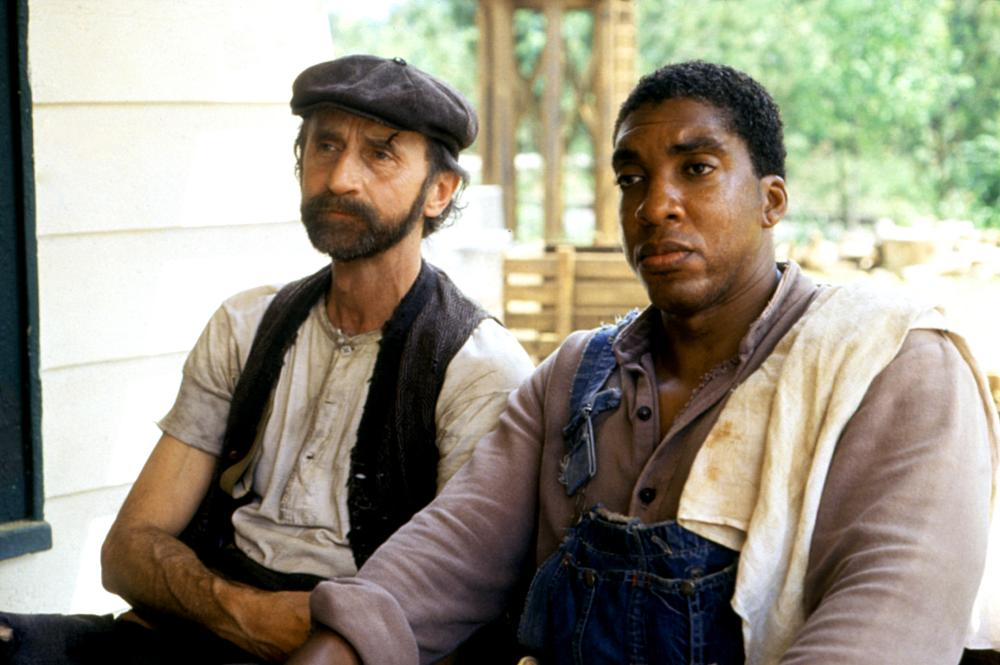
In a film brimming with heart, it is Ninny Threadgoode—played with radiant warmth by Jessica Tandy—who holds the emotional thread that binds the past and the present. From the porch of a Southern nursing home, Ninny shares stories that stretch across decades, changing lives and shaping destinies.
She may seem like just a talkative elderly woman at first glance, but Ninny is far more: a living archive, a keeper of legacy, and perhaps even a disguised protagonist in her own right.
The Catalyst for Change
When Evelyn Couch stumbles into Ninny’s world during a reluctant visit to the Rose Hills nursing home, she is listless, defeated, and stuck. But Ninny—with her twinkling eyes and endless anecdotes—offers something Evelyn didn’t know she needed: a lifeline through story.
Her tales of Whistle Stop, of Idgie and Ruth and the Whistle Stop Café, are more than charming distractions. They are tools for survival. Through them, Evelyn begins to reevaluate her own life, her worth, and her potential. Ninny doesn’t lecture or advise. She simply tells the truth—wrapped in honey, humor, and old-fashioned Southern wisdom.
In doing so, she becomes the spark of Evelyn’s transformation.
Truth or Tale? The Mystery of Ninny’s Identity
One of the most intriguing aspects of Ninny’s character is the subtle suggestion that she may, in fact, be Idgie Threadgoode, recounting her own life under a pseudonym. While the film never confirms this theory outright, it drops tantalizing hints: her deep familiarity with the town’s secrets, her emotional attachment to Ruth, and the quiet pride with which she speaks of Idgie’s defiance.
Whether Ninny is truly Idgie or not, the ambiguity enhances her mystique. She becomes a vessel for memory, identity, and reinvention—someone who’s lived many lives and now chooses to live again through the telling.
A Feminine Griot in Southern Form

In African and Southern oral traditions, the “griot” is the storyteller—a guardian of history, culture, and identity. Ninny fits this role perfectly. She ensures the legacy of Whistle Stop lives on long after the town fades from the map.
Through her stories, viewers come to understand how history is shaped—not by grand events, but by everyday people. By women cooking in kitchens, resisting injustice, raising children, and choosing love over law.
She reminds us that storytelling is not passive—it’s a form of resistance. A way of saying, “I was here. We mattered.”
Humor, Honesty, and Humanity
Ninny’s charm lies not just in her tales, but in how she tells them. Her delivery is laced with sass and sweetness, humor and heartbreak. She recalls racist injustices and domestic violence in one breath, and then quips about food or relationships in the next. Her stories hold contradictions—like life itself.
That balance of light and dark makes her voice so powerful. She doesn’t shy away from pain, but she doesn’t let it swallow her either. Her ability to find laughter in sorrow is a form of wisdom earned over a lifetime.
A Model of Aging with Purpose
In most films, elderly women are depicted as frail, forgetful, or out of touch. Ninny is none of these. She is mentally sharp, emotionally vibrant, and socially relevant. She matters—not because of what she can still do, but because of what she remembers and shares.
Her presence reminds us that aging isn’t an ending. It’s another chapter. And often, the most powerful role an elder can play is to pass on truth, hope, and identity to the next generation.
Ninny’s Legacy
By the end of Fried Green Tomatoes, it’s clear that Ninny has done far more than simply pass time in a nursing home. She has reshaped Evelyn’s life, reanimated a forgotten town, and carried the legacy of Idgie, Ruth, Sipsey, and Big George forward.
She may walk slowly, but she moves worlds.
Ninny Threadgoode is not just a supporting character. She’s the film’s heartbeat—a reminder that storytelling is a sacred act of survival, and that one voice, when used with honesty and love, can echo through generations.
